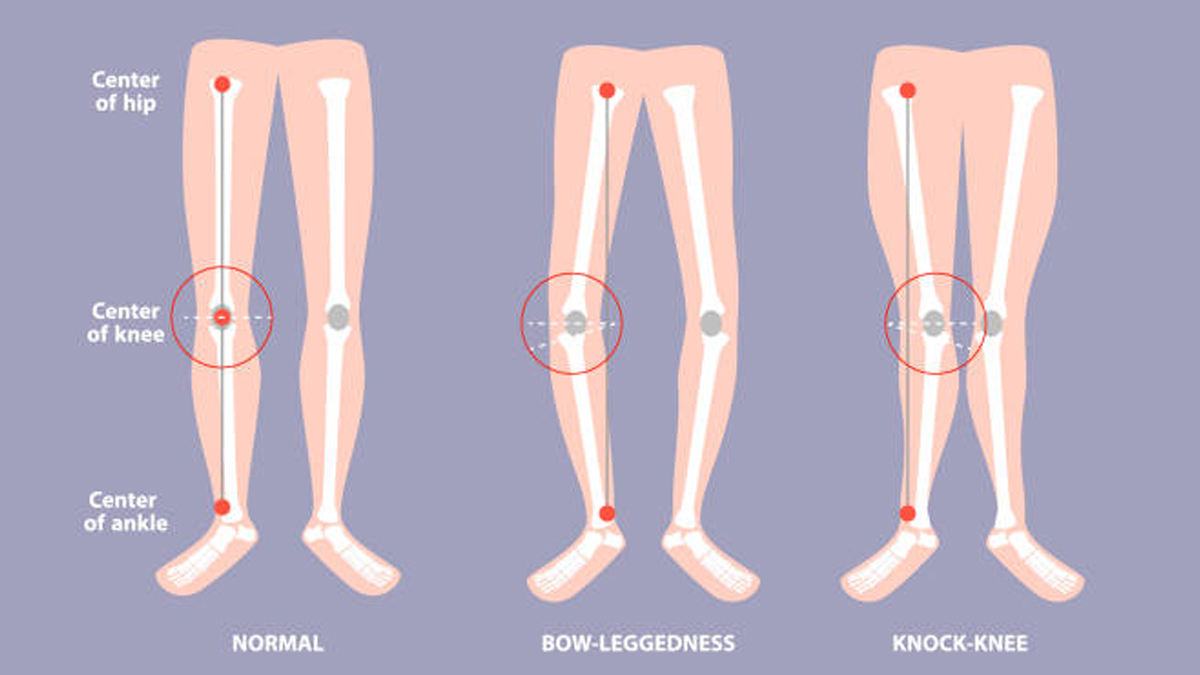
Popular YouTubers Armaan Malik and Kritika Malik recently shared distressing news about their 2-year-old son, Zaid, being diagnosed with rickets. In an emotional vlog, Kritika Malik expressed her heartbreak over her child's health condition and mentioned how the constant negative comments about her son had been mentally affecting her. While discussing the diagnosis, she broke down, sharing her helplessness and concern as a mother.
Table of Content:-
The news of Zaid’s diagnosis has sparked widespread discussions about rickets, a bone disorder that primarily affects children, causing weak and soft bones. The condition often arises due to vitamin D, calcium, or phosphate deficiency, resulting in skeletal deformities. Since many parents are unaware of the early signs of rickets, it often remains undiagnosed until it progresses into a serious condition.

What Is Rickets?
As per Dr Sweta Budyal, Consultant Endocrinologist and Diabetologist, Fortis Hospital, Mulund, rickets is a bone disorder that primarily affects infants, toddlers, and children, leading to soft and fragile bones. It is mainly caused by a severe deficiency of vitamin D, calcium, or phosphate — three essential components needed for healthy bone development. Without adequate vitamin D, the body cannot absorb calcium and phosphate from the diet, leading to weakened bones and skeletal deformities.
The condition is often seen in children living in regions with limited sunlight exposure, poor nutrition, or underlying health conditions that hinder nutrient absorption. Early diagnosis and treatment are crucial to prevent long-term complications in affected children.
What Causes Rickets In Children?
The primary cause of rickets is a lack of vitamin D, but several other factors can contribute to the development of this condition. Here are the most common causes:
Lack of Sunlight Exposure
Vitamin D is naturally produced by the skin when exposed to sunlight. However, limited outdoor activities, excessive use of sunscreen, or living in areas with low sunlight can lead to vitamin D deficiency, increasing the risk of rickets.

Poor Diet or Malnutrition
Children who do not consume foods rich in vitamin D, calcium, and phosphate are more prone to developing rickets. Diets lacking in fish, dairy products, eggs, and fortified cereals can contribute to weak bones and slow development.
Malabsorption Disorders
Certain gastrointestinal disorders like celiac disease, Crohn's disease, or cystic fibrosis can affect the body’s ability to absorb essential nutrients, leading to nutritional deficiencies and eventually rickets.
Also Read: Shilpa Shirodkar Drops 14 Kg at 51! Actress Reveals Her Secret Diet Plan for Stunning Weight Loss
Genetic Disorders
In rare cases, some children inherit genetic conditions that affect phosphate metabolism, causing bone deformities similar to rickets, despite normal vitamin D levels. This condition is commonly referred to as hypophosphatemic rickets.
Kidney or Liver Disorders
Both the kidneys and liver play a vital role in converting vitamin D into its active form. Children with kidney or liver diseases may have difficulty processing vitamin D, resulting in bone weakness and other symptoms of rickets.
Signs and Symptoms of Rickets in Children
Recognising the early symptoms of rickets is crucial for timely diagnosis and treatment. Parents should be vigilant if their child shows any of the following signs:
Soft and Weak Bones
Children with rickets often have soft and fragile bones, making them prone to fractures, even with minor falls or injuries.
Also Read: Ranbir Kapoor's Workout Routine Sets Major Fitness Goals Ahead Of Love And War
Delayed Growth and Development
A noticeable slow growth rate or delayed physical development in children may indicate nutritional deficiency-related bone problems.
Skeletal Deformities
One of the most recognisable signs of rickets is skeletal deformities, such as bowed legs or knock-knees, thickened wrists, ankles, or knees, and an abnormally shaped skull.

Muscle Weakness
Children with rickets often experience muscle weakness, causing difficulty in walking, running, or standing for prolonged periods.
Dental Problems
Rickets can affect the development of teeth, leading to delayed tooth eruption, weak tooth enamel, and increased risk of cavities.
Frequent Fractures
Since rickets weakens the bones, children with the condition are more likely to suffer from frequent bone fractures, even from minor impacts.
Is Rickets Treatable?
Yes, rickets is completely treatable and preventable with timely medical intervention. The treatment usually focuses on correcting the nutrient deficiency and ensuring proper bone development. Some of the common treatment options include:
Vitamin D and Calcium Supplements
The primary treatment for rickets is vitamin D and calcium supplementation. Depending on the severity of the condition, healthcare providers may prescribe daily or weekly doses of vitamin D to rebuild bone strength.
Increased Sunlight Exposure
Encouraging children to spend more time outdoors during sunlight hours can naturally boost vitamin D production in the body. However, it is recommended to ensure adequate sun protection without blocking vitamin D synthesis.
Balanced Diet
A well-balanced diet rich in calcium, vitamin D, and phosphate is crucial in treating and preventing rickets. Foods that should be included are fish, dairy products, fortified cereals and juices, and egg yolks.
Physical Therapy (In Severe Cases)
In advanced cases of rickets, physical therapy or braces may be recommended to correct skeletal deformities and improve muscle strength.
Bottomline
The news of Armaan Malik and Kritika Malik’s son Zaid being diagnosed with rickets has raised widespread concern about children's bone health. However, it is essential to remember that rickets is a preventable and treatable condition when detected early.
Parents must stay vigilant about their child’s growth, bone health, and nutritional intake to prevent vitamin D deficiency. Additionally, ensuring adequate sunlight exposure, a balanced diet, and regular health check-ups can go a long way in protecting children from developing rickets.
The Malik family’s openness about their child’s health struggle has created awareness about the importance of bone health in children, encouraging other parents to prioritize their child’s nutritional intake and overall well-being.
Also watch this video
How we keep this article up to date:
We work with experts and keep a close eye on the latest in health and wellness. Whenever there is a new research or helpful information, we update our articles with accurate and useful advice.
Current Version